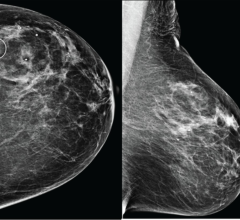
Rep. Danny Davis (D-IL)
June 2, 2010 - The American College of Radiology (ACR) announced it strongly urges Congress to pass the Virtual Screening for Colorectal Cancer Act of 2010 (H.R. 5461), which would require the Centers for Medicare and Medicaid Services (CMS) to provide coverage of screening computed tomography colonography (CTC) to Medicare beneficiaries.
Rep. Danny Davis (D-IL), with cosponsors Rep. Mark Kirk (R-IL), and Rep. Dan Boren (D-OK), introduced the bill in the U.S. House of Representatives by on May 28, 2010.
CTC, commonly known as a virtual colonoscopy, is proven in clinical trials to be as accurate as standard colonoscopy at detecting clinically significant lesions in average risk patients. It is endorsed by the American Cancer Society as a recommended colon cancer screening test. It is recognized by the Blue Cross Blue Shield Association Technology Evaluation Center (TEC) as an effective screening tool.
Yet, while many private health insurers, including CIGNA, UnitedHealthcare, and Anthem Blue Cross Blue Shield, cover screening and diagnostic CT colonography for their beneficiaries, Medicare will not cover the exam for our nation’s seniors.
“Colorectal cancer kills thousands of people each year unnecessarily because less than half of those who should be screened for this preventable disease choose to do so. CT colonography is a safe and effective, frontline colorectal cancer screening tool that can attract many more people to be screened for the nation’s second leading cause of cancer death and ultimately help save thousands of lives,” said John A. Patti, M.D., FACR, chair of the ACR Board of chancellors. “President Obama, who has access to the latest medical information and finest care, recently chose to be screened with CT colonography. The test works. Congress and the President need to make good on their promise to ensure that everyone has access to the same care that they have by requiring Medicare to cover seniors for CT colonography.”
CTC employs cutting-edge low dose x-ray technology to produce three-dimensional images of the colon. It is much less invasive than standard colonoscopy, which places a long tube with a camera on one end into and throughout the colon. CTC, unlike standard colonoscopy, does not require sedation so patients can return to normal daily activities immediately following the procedure.
Medicare’s denial of coverage, in effect, creates a two-tiered approach to screening coverage for this deadly and preventable disease: one for those who have private insurance (or the ability to pay out of pocket) and lesser coverage for Medicare beneficiaries. CTC coverage is mandated by at least 14 states that follow American Cancer Society screening recommendations. Medicare needs to provide coverage for seniors now.
“It’s time for all patients who want a CT colonography to be covered for this lifesaving exam. All the relevant clinical questions have been answered and the test has been shown to be attractive to those who may have previously opted not to be screened for colorectal cancer. The very facility where President Obama was screened saw a 70 percent increase in colon screenings after virtual colonoscopy was offered as an option. Medicare coverage of CT colonography will allow far wider screening for this deadly disease, find more cancers early when they are most treatable and less costly to treat, and ultimately save thousands of lives each year,” said Judy Yee, MD, chair of the ACR Colon Cancer Committee.
CTC’s minimal invasiveness and lower cost has the ability to attract far more people to be screened and ultimately save lives — particularly among minorities where screening rates have historically been low. The Journal of the American Geriatrics Society released a study demonstrating that the disparity between white and non-white Medicare enrollees receiving a colonoscopy screening increased between 1995 and 2003.
“Minorities disproportionately forgo screenings. Providing Medicare patients an effective and less invasive screening tool for colorectal cancer can help overcome the disparity in colorectal care that exists in minority communities. Congress needs to act now to help minority and underserved populations gain access to this potentially life saving care,” said Dr. Patti.
For more information: www.acr.org and www.cancer.org


 February 09, 2026
February 09, 2026 









